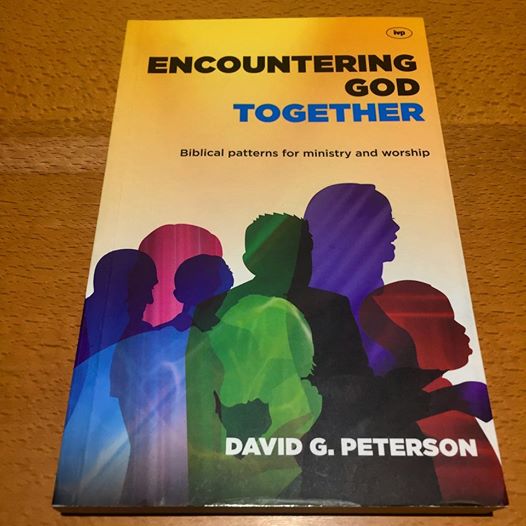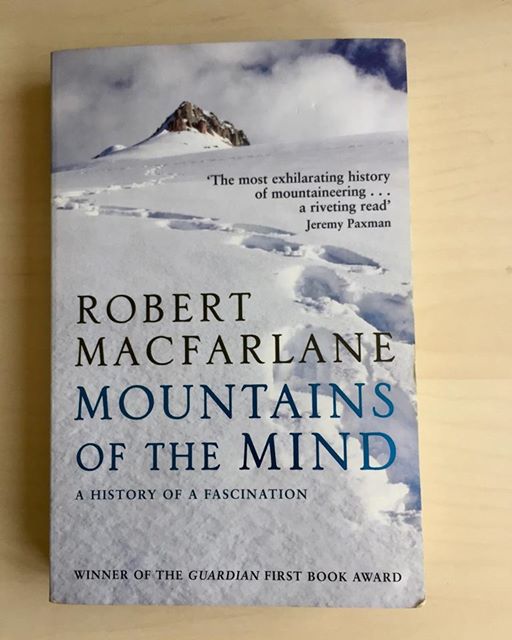I had the privilege of hearing Mike present on this book at Doxology & Theology Conference in the US last year and immediately I was hooked. Don’t be thrown by the title. This is not a ‘get more disciplined and read your Bible more!’ kind of book. Rather, Cosper goes to the core of why we have lost ‘wonder’ about God in the first place - our cultural obsession with reason and rationality. How can we live a life of faith in such a world? Cosper gently, convincingly, and often humourously reopens the reader’s heart to the absolute transcendence of our God - a God who operates in His own beautiful and perfect ways in His own beautiful and perfect time. That is, in ways and with timing that reason and rationality can never pin down. And that is the unseen economy that we, as believers, have been lovingly welcomed in to. This is the perfect read to start the year. Be prepared to have your spiritual outlook and your heart transformed as you read this magnificent book. //
Greg Cooper
#worship #theology
BOOK OF THE WEEK // ‘You Are What You Love’ by James K.A. Smith.
So much of modern life assumes that we are what we think. Get the thinking right, and behaviour will follow. Church life is no different, with much of our ministry energy geared towards shaping thinking above all else. Smith skilfully argues that while thinking is important, the heart may be more powerful in shaping behaviour than we give it credit for. Perhaps what the heart loves, the will chooses, and the mind justifies. As Smith says, “Christian worship...is essentially counterformation to those rival liturgies we are often immersed in, cultural practices that covertly capture our loves and longings, miscalibrating them, orienting us to rival versions of the good life. This is why worship is the heart of discipleship. We can’t counter the power of cultural liturgies with didactic information poured into our intellects...The orientation of the heart happens from the bottom up, through the formation of our habits of desire. Learning to love (God) takes practice.” I can’t overstate how pivotal this book has been in shaping my thinking on corporate worship. Grab a copy and be ready to highlight a lot! // Greg Cooper
#theology #worship
BOOK OF THE WEEK // ‘A Diary Of Private Prayer’ by John Baillie.
In our leadership of corporate worship, it all has to start with us, and our own relationship with God. Every single day. This devotional from Scottish theologian John Baillie was first published in 1936 and draws on rich and evocative language (think the Pslams!) to allow us to see both our own neediness and God’s beauty in wonderfully fresh ways. As the very first prayer in the book says, “Eternal Father of my soul, let my first thought today be of you, let my first impulse be to worship you, let my first word be your Name, let my first action be to kneel before you in prayer.”
At times in recent years when I have not been able to find my own words to pray, I have so often relied on Baillie’s. What a gift he and this book are to the church. I can’t recommend it highly enough. // Greg Cooper
BOOK OF THE WEEK // ‘Encountering God Together’ by David G. Peterson.
Praise God for David Peterson and his tireless academic work in the area of corporate worship. His seminal work ‘Engaging With God’ lays the groundwork for a biblical paradigm of worship in which we approach God in worship on His terms, not our own. ‘Encountering God Together’ - a more popular level book - applies much of Peterson’s thinking to the context of the gathered church. What is really going on when we meet as God’s people? How should we think about encountering God through his Word? And edifying one another through song? David argues that as we gather, “God ministers to us, and we respond to God as we minister to one another.” If we really believe this is what’s going on, then the practical implications for church life are significant, as the book outlines. We were privileged to have David speak at the Team Pastoring Conference in 2017, and we are deeply thankful to be able to continue learning from his wisdom and insights. // Greg Cooper
BOOK OF THE WEEK // ‘Mountains of the Mind’ by Robert Macfarlane.
Something a little different this week... Language matters. Language shapes thoughts. Language shapes reality. And church leaders are in the business of using language well and creatively to help shape hearts and minds. So this book - about the history of mountaineering - is, in my view, a masterclass in the use of language to convey concepts of grandeur, majesty, and glory. “Great height gives you greater vision: the view from the summit empowers you. But in a way, too, it obliterates you. Your sense of self is enhanced because of its extended capacity for sight, but it also comes under attack - is threatened with insignificance by the grand vistas of time and space which become apparent from a mountaintop.” As I have read this book, I have felt challenged to always search for a better word, and to think about how I can share God’s holiness and glory with more creative language. I hope you might be challenged likewise. // Greg Cooper
BOOK OF THE WEEK // ‘Resounding Truth’ by Jeremy S. Begbie.
I first heard Jeremy Begbie speak on the theology of music around 10 years ago. It was a cold winter’s night in a small lecture room at the University of NSW. To my surprise, this gifted academic was also a concert pianist. He paused his lecture every few minutes to illustrate his spoken word through musical ideas on the keyboard.
And this book is no different. Begbie explores the beautiful interplay between theology (the study of God) and music as a depiction of the Creator. Exploring the ways that harmony and melody can orientate our lives to God, he argues that “the most basic response of the Christian towards music will be gratitude... None of it had to come into being. But it has, for the glory of God and for our flourishing. Gaining a Christian mind of music means learning the glad habit of thanksgiving.” // Greg Cooper
#worship #jeremybegbie #resoundingtruth
The New Year's Narrative
Greg Cooper
As I prepared to lead singing at church on New Year’s Eve 2017, I was already experiencing ‘that New Year’s Eve feeling’. The one that involves a mental narrative of questions: Did I even achieve anything this year? How will I improve on who I am next year? How will I focus on my goals more next year? And for the Christian – will I be any more godly next year?







